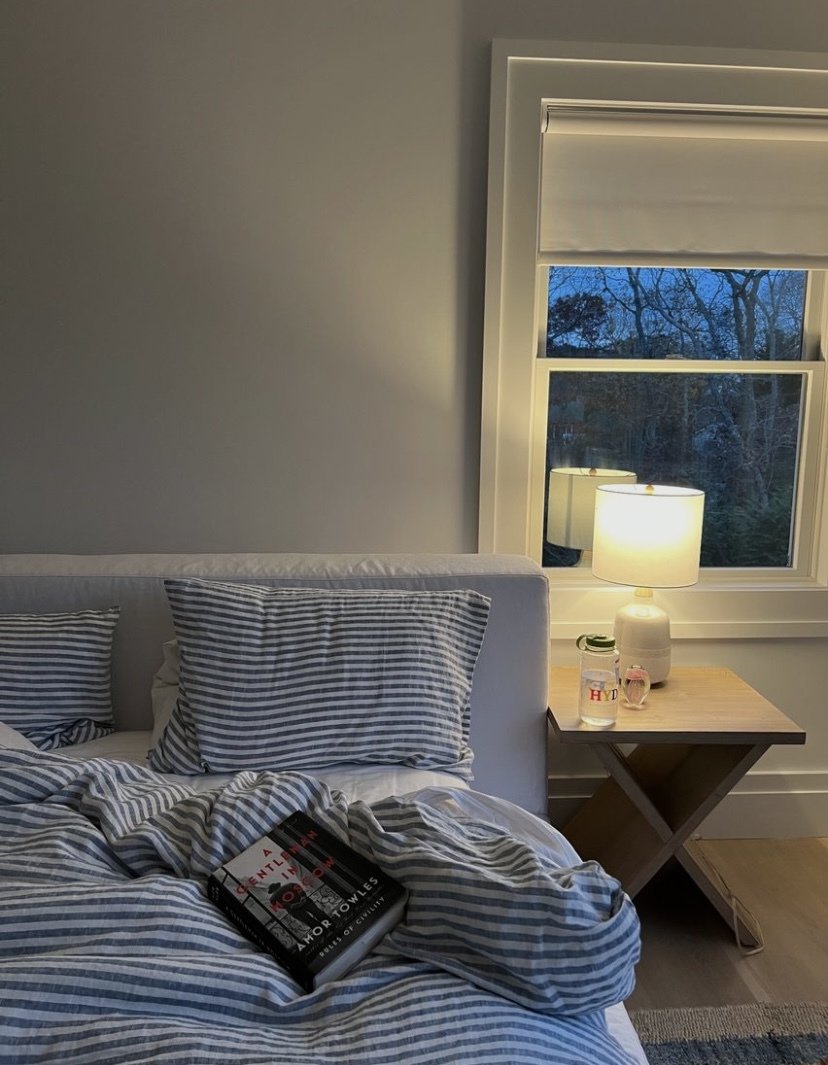Reinstating Sleep as a Priority
November 15, 2022
Writer: Megan Hoying
Editor: Lynn Sabieddine
We all have the days or weeks when sleep does not make it on our to-do list. The stresses of our daily lives pile up on our shoulders and getting the recommended 7-9 hours in seems almost comical. However, sleep is a huge determinate in our levels of attention, joy, and productivity throughout the day. A lack of sleep is detrimental to a healthy lifestyle and a productive mind.
Sleep deprivation can cause:
a lack of alertness
impaired memory
increased stress and worry
a less effective immune system
a tendency to eat more junk food
a decreased motivation to move your body.
Here are a few tips on getting more sleep and preparing your body for those days when you just can’t squeeze in those 7-9 hours.
Establish a nighttime routine - and stick to it.
To regulate the circadian rhythm and fall into a deep sleep, you should be going to sleep at around the same time every night and waking up at the same time every morning. When possible, create a routine that unwinds your body and mind at the same time every night. Creating a routine that you grow used to triggers your body into a relaxed state — reducing the stress of planning around bedtime. It will then become increasingly easier to fall asleep. Having a “bedtime” will also help you prioritize the amount of sleep you get, whether you have a busier day or not.
Tailor your room to be a relaxing environment.
Before going to bed, make sure the environment surrounding you is dark, a temperature to your liking, and quiet. To make your room even more of a sleep sanctuary, you can diffuse lavender oil in your room, have a favorite blanket or pillow that you sleep with, and turn your phone and television off an hour before bed. I also recommend staying away from doing homework or other activities in your bed that aren’t relaxing. Although tempting, working in your bed during the day makes your bed less stress-relieving when you are trying to go to bed at night.
Spend time before bed relaxing.
The most ideal time to spend before bed relaxing is an hour before actually going to sleep. However, this seems like an unreasonable amount of time for a college student. Spending at least 15-20 minutes before going to bed doing something relaxing helps sleep quality tremendously. Relaxing activities include reading, journaling, and meditating before bed. Try to avoid screen-time before bed.
Pay attention to daily habits.
A lot of what we do during the day can affect how we sleep at night. Make sure to move your body during the day. Spending time during the day being physically active can promote sleep. Also, pay attention to what you are eating and drinking. Don’t go to bed too hungry or too full, as that will create discomfort trying to go to bed. Limit caffeine intake, especially after noon. Also, limit alcohol as it can disrupt sleep during the night.
What should you do if you can’t get enough sleep?
Make sure you are nourishing your body during the day the following day. Start your day with a big glass of water — yes, even before a cup of coffee - and continue drinking water throughout the day. Eat an energizing, filling breakfast that will provide you with the energy you need to get through the day. It’s also important to simplify your day. Put fewer things on your plate so you can still complete a few tasks with quality work. Also allow yourself to take breaks throughout the day, like an outdoor walk, a low-intensity workout, or journaling. It may be harder to focus, so don’t be too hard on yourself. Finally, try and get back to your normal sleep routine. Don’t sleep more than 2 hours than you usually do the next night to get you back on track.
Sleep for a college student is definitely difficult to stay consistent with. However, it’s so important to think of sleep like any other assignment in your planner. Try and “turn it in” on time so that you can do everything you need to do during your busy days. Although it seems counterintuitive, when you are studying for a test the next day, remember it might be more productive to get an extra hour of sleep rather than cramming for another hour before bed.

